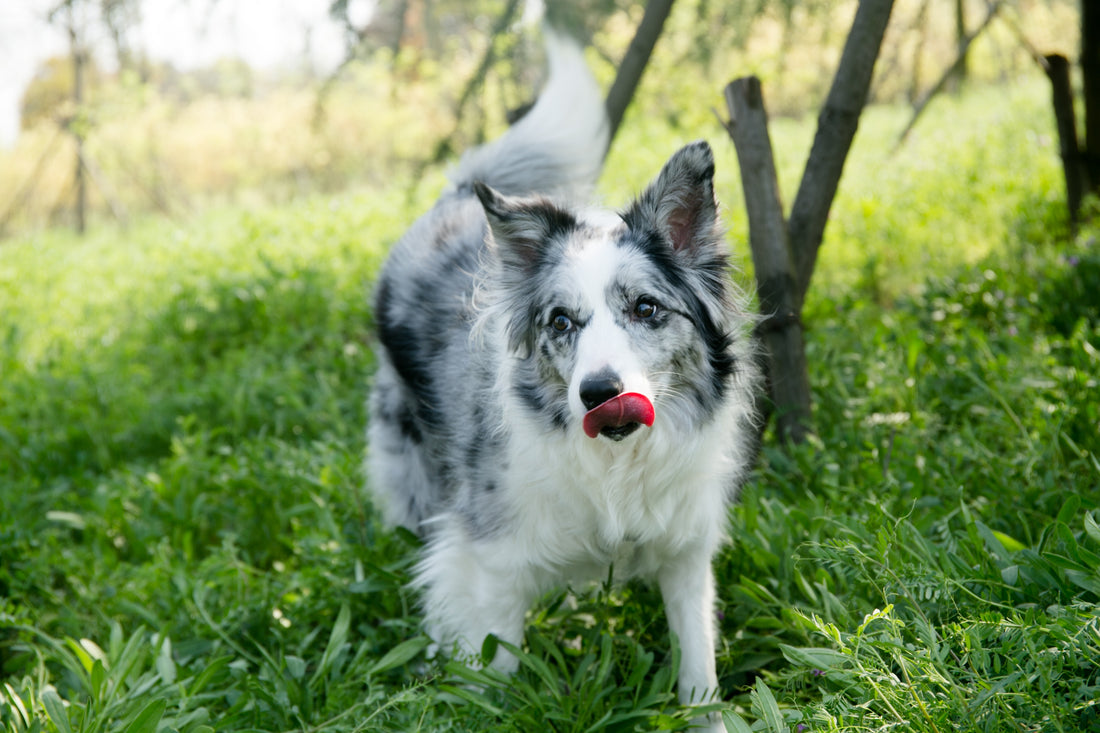Spring has sprung and with it comes itchy, watery eyes and runny nose!
Did you know that around 20% of dogs in Australia suffer from allergies? Dogs, like humans, can be sensitive to pollen and other environmental stressors.
So, what are the different types of pet allergies?
There are three main types of allergies affecting dogs:
- Flea allergy (or flea dermatitis): this is when your dog is allergic to certain proteins present in the flea’s saliva. These proteins are injected in your dog’s skin when a flea bites, causing excessive itchiness, possible skin irritation and sometimes hair loss, from your dog scratching the area relentlessly.
- Food allergy: surprisingly only the 3rd most common reason for allergies. Beef, dairy, wheat and chicken are the usual culprits.
- Environmental allergies (or atopic dermatitis): from grass weeds, pollen, mold or house dust. This is the most common type of allergy.
Is my dog more susceptible to allergies?
Some dog breeds are more susceptible to develop an allergy. Dalmatians, retrievers, sharpeis, terriers and bulldogs all are more inclined, and allergies will usually develop between the age of 6 months to 3 years.
As allergies are quite difficult to pinpoint and the symptoms are typically the same (itching, licking of paws, ear infection etc), it is highly recommended that you make a visit to your vet so your dog can be screened for a list of allergens. Your vet will either perform a blood test or an intradermal skin test, both non-invasive tests.
If the allergies are getting out of hand, your vet can prescribe antihistamines, steroids or supplements.
The important thing is not to get overwhelmed. There are a lot of simple and holistic approaches you can take to manage your dog’s allergies!

What to do?
Allergies cannot be cured. However, they can be managed!
The best way is to avoid exposure or limit contact with the responsible stressor.
- Think flea control and prevention (vacuum bedding and carpets often) and use DIY natural flea repellent.
- Avoid grassy areas and clean your dog after being exposed to environmental stressors using a gentle, oatmeal shampoo which help with itchy skin. You can also do a paw bath after a walk: quick and easy!
- Brands like Dr Zoo Pet offer a special range of products for irritable skin including a cream you can apply in areas of concerns. Look out for products designed to sooth and made with ingredients that are safe for your dog to lick.
- Natural treatments such as rubbing some coconut oil on your dog’s coat, can go a long way in reducing itchiness, and you’ll get a shiny coat as a bonus.
- Oils can also be taken internally: omega 3 fatty acids have been shown to reduce skin irritation. Flaxseed oil and canola oil are safe for your dog to eat and can be added to their diet (1tsp to 1tbsp per meals depending on your dog’s size).
- For food allergies, an elimination diet is the best way to go in order to identify and remove the offender.
Does your dog experience seasonal allergies? And what have you found works best to manage the symptoms?
Wanna receive blog posts straight to your e-kennel? Join our newsletter
-------------------------------------------------------------------------------------------------
The Doggy Grub blog is dedicated to help dogs and their owners achieve happier, healthier lives, changing the way we feed our dogs one bowl at a time! If you would like to know more about our fresh food head to Doggy Grub










